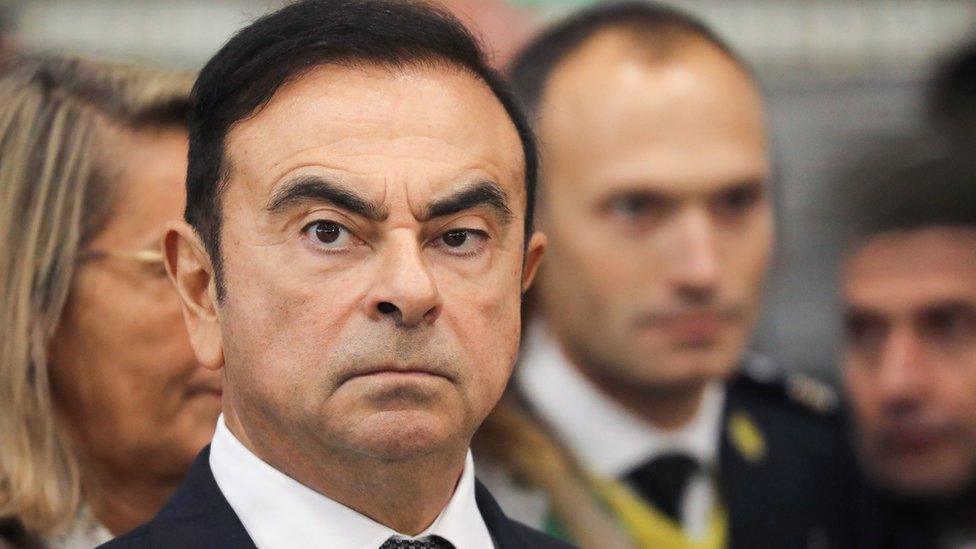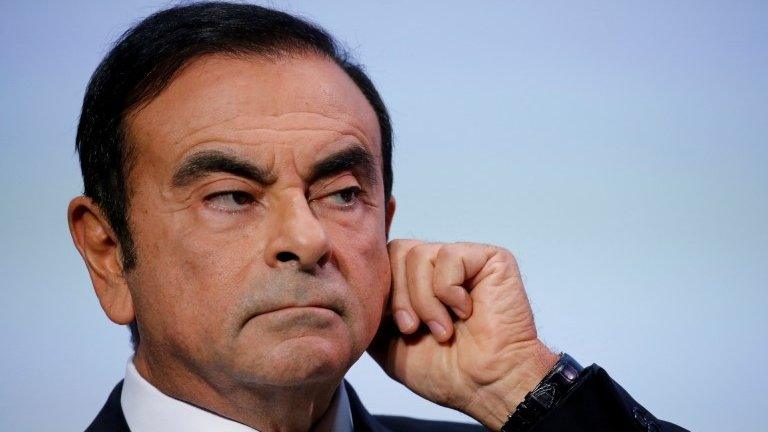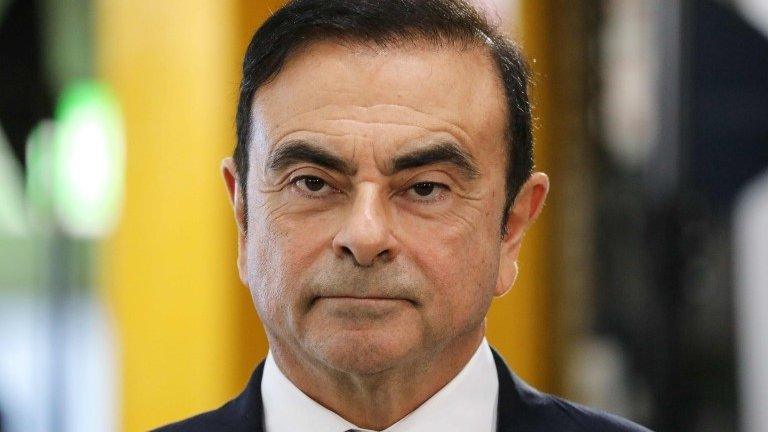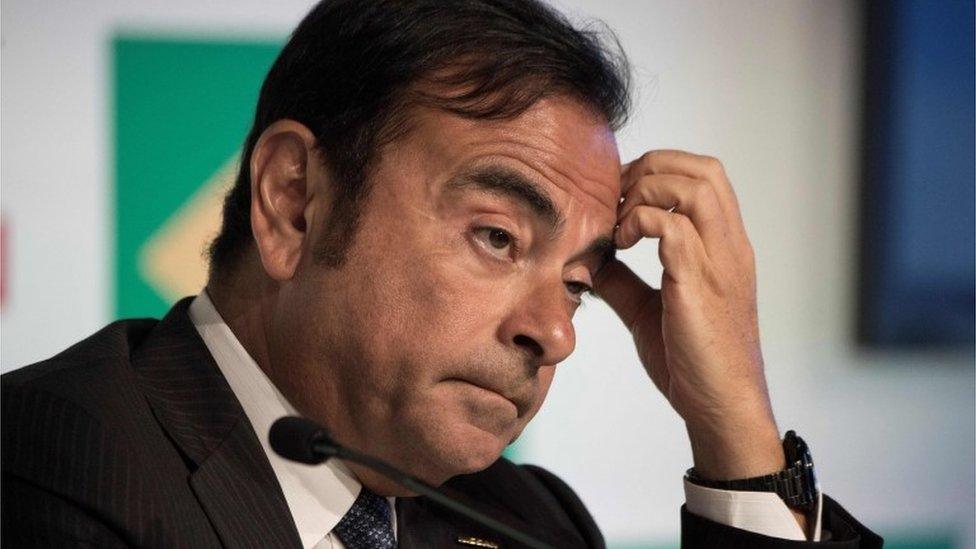Carlos Ghosn accuses Japan of unlawful conspiracy
- Published

Carlos Ghosn's lawyers have accused the Japanese government of conspiring against him, along with prosecutors and Nissan executives.
Mr Ghosn, who was arrested last year over claims of financial misconduct, faces several charges in Japan.
His lawyers say the Tokyo court should drop all charges against him because of "unlawful breaches" by prosecutors.
Mr Ghosn, formerly a towering figure in the carmaking world, is out on bail awaiting trial.
Mr Ghosn's lawyers said in a statement that the prosecutors' case was "politically motivated" and laid out some of the "illegal actions" they say were committed by the prosecutors.
"The prosecution against him resulted from unlawful collusion between the prosecutors, government officials at METI (Ministry of Economy, Trade and Industry) and executives at Nissan, who formed a secret task force to drum up allegations of wrongdoing," the lawyers said, according to the statement.
They said the aim was to oust Mr Ghosn from his position as head of the Renault-Nissan alliance to prevent him from integrating the two companies "which would have threatened the autonomy of one of the jewels of Japanese industry under the French flag".
Mr Ghosn is credited with having turned around the fortunes of both Nissan and Renault over several years.
Nissan declined to comment when contacted by the BBC.


Carlos Ghosn's lawyers certainly aren't holding back. The man himself has already accused "backstabbing" executives at Nissan of conspiring with prosecutors to bring about his downfall.
But now they've gone even further, implicating government officials in a grand conspiracy, designed to avoid a Ghosn-led merger between Nissan and Renault and prevent a Japanese industrial champion from coming under a French flag.
It's a move which seems designed to cause maximum embarrassment in Japan, to present Mr Ghosn as the innocent foreign victim of a nationalist stitch-up - and effectively put the Japanese judicial system on trial.
It makes the charges themselves - which are all denied - seem almost irrelevant. But that may well be the general idea.

How did we get here?
The 65-year-old was first arrested in November 2018 and spent 108 days in custody. He faces charges over allegations of financial misconduct and breach of trust.
Mr Ghosn, who was first released in March after posting bail, has repeatedly said he is innocent.
He has previously also accused former Nissan executives of "backstabbing".
The fall from grace of the industry titan has attracted global attention.
The case has also highlighted infighting within the carmaker alliance and focused scrutiny on Japan's legal system.
- Published31 December 2019

- Published31 December 2019

- Published31 December 2019
